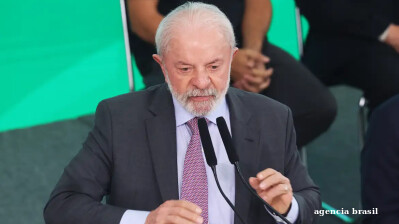Mexico is taking decisive steps to protect its trade interests with the United States amid growing concerns over potential tariffs on its exports under a future administration led by president-elect Donald Trump. President Claudia Sheinbaum has unveiled a comprehensive strategy aimed at reducing reliance on Chinese imports and strengthening local production to ensure compliance with the United States-Mexico-Canada Agreement (USMCA).
On November 25, Trump suggested a 25% tariff on Mexican imports until the Latin American country stems undocumented immigration and drugs crossing the border. He said he will impose tariffs on January 20. It is unclear if Trump is serious or if his statement - on social media - is a negotiating tool.
Under pressure from Trump, who has slammed Mexico for allegedly channelling Chinese parts into North America through its supply chains, Sheinbaum's government has launched a campaign to replace Chinese components with locally manufactured goods. This effort, spurred by global supply chain disruptions in 2021, aims to bolster Mexico's role as a reliable trading partner while safeguarding the USMCA free trade agreement's future.
"In the meetings we have with Canada and (US president-elect) Trump, we'll show that the idea that Chinese products are entering through Mexico is false," Sheinbaum said at a recent press briefing.
“Automobiles manufactured in Mexico, whether they are exported to the United States or stay in Mexico, have only 7% content of products coming from China. In the US, it is 9%,” she added.
US crude imports from Mexico in 2023 were on average 733,000 barrels per day, according to the US Energy Information Administration. In 2022, Mexico was the second largest exporter globally of oil to the US.
Mexico’s "decoupling" plan includes incentives for companies to produce critical components domestically. Notably, Economy Secretary Marcelo Ebrard announced plans to begin microchip production in 2025, a bold move aimed at reducing dependence on Asian suppliers. However, analysts warn that achieving self-sufficiency in key sectors, particularly high-tech manufacturing, remains a long-term challenge.
The stakes are high, with the USMCA up for review in 2026. While experts agree that ditching the agreement altogether is unlikely, mounting criticisms from some hawkish Republican lawmakers and industries add pressure. The trade pact entered into force in 2020 under the previous Trump administration, and was hailed by the former president as "the fairest, most balanced and beneficial trade agreement we have ever signed." Yet recent hostile US actions, such as tariffs slapped by the Biden administration on steel and aluminium originating from outside North America but routed through Mexico, underscore the urgency to address trade imbalances and perceived loopholes.
Mexico is also expanding its infrastructure to strengthen its trade position. The $2.7bn expansion of the Manzanillo port initiated last week, set to more than double its capacity by 2030, underscores the country's commitment to becoming a regional trade powerhouse. This project will elevate Manzanillo to one of Latin America’s busiest ports, positioning it to compete directly with Peru's Chinese-built $3.4bn Chancay port inaugurated earlier this month.
Meanwhile, Sheinbaum has thrown an olive branch to the incoming US administration, pledging to align regulatory reforms with USMCA requirements to prevent potential trade disputes. By taking proactive measures, Mexico seeks to ensure that its vital trade relationship with the US remains robust, even amid Washington's unpredictable moves and shifting geopolitical tensions.
News

Trump would like to meet North Korea’s Kim Jong Un during Asia trip
The prospect of renewed diplomacy between Washington and Pyongyang has lingered since Kim’s remarks last month suggesting a willingness to speak to the outside world.

Bill Gates makes surprise Indian TV debut
In a move set to spark both intrigue and curiosity, Microsoft co-founder and philanthropist Bill Gates has made a cameo appearance on Indian television, entering the iconic drama series Kyunki Saas Bhi Kabhi Bahu Thi 2.

Queen Sirikit of Thailand dies
The death of Queen Sirikit of Thailand has marked the end of an era for the Thai monarchy. According to an official statement from the Bureau of the Royal Household of Thailand, Her Majesty died at 9.21 pm on October 24.

Pakistan, the latest in Asia to see gold prices plummet
In international trading, the precious metal lost $35 per ounce to settle around $4,115, extending a week-long slide triggered by shifting expectations over US monetary policy.
_1761305900.jpg)


